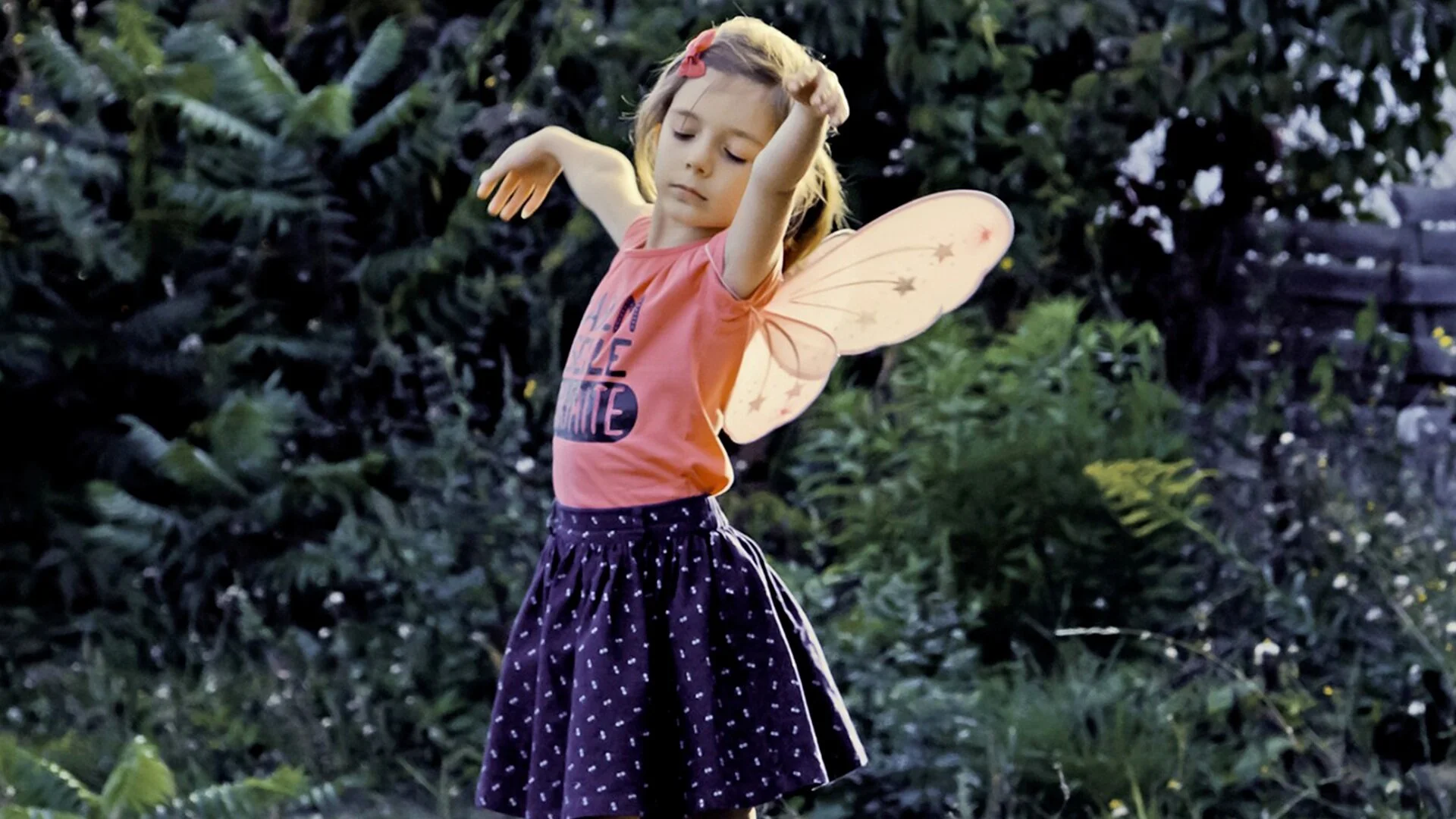Little Girl
A landmark work that elevates the standing of Sébastien Lifshitz.
We have here a strong contender to be considered the best film of 2020. Little Girl (Jeune fille) is a documentary feature by the French director Sébastien Lifshitz and it is remarkable on several levels. First off there is the simple fact that despite the film showing a family coping with a difficult situation everybody concerned seems totally at ease being photographed. This is hugely to Lifshitz's credit since he could never have achieved this without first obtaining the absolute trust of those being filmed. Furthermore, even though the process involved close-up shots using the 'Scope format, there is never any sense of the filmmaker intruding. All of this is testimony to the sincerity and humanity that he brought to the project and those qualities are always deeply apparent to us as we watch his film.
Lifshitz, a gay director, has been making films for the past twenty years and as long ago as 2004 he created a drama, Wild Side, which he co-wrote with Stéphanie Michelini who played the central character, one based on her own life as a trans woman. Although his early features used actors, in more recent times Lifshitz has devoted himself to making documentaries. Of these the one that obtained a release here was Les invisibles, his 2012 feature-length study of elderly gays and lesbians (as it happens, I personally found it rather disappointing despite its obvious good intentions). In other documentary works not seen in the UK he has touched on the lives of transgender people: indeed, 2013's Bambi was apparently devoted to one such elderly woman looking back on her life. This new film, Little Girl, can be thought of as a companion piece, albeit one that approaches the subject from the reverse angle since this work features an eight-year-old, Sasha, who is convinced that despite being born a boy she is in reality a girl.
Considering the sensitivity of the subject matter, the confidence that Sasha's family placed in Lifshitz is all the more extraordinary, but it was not misplaced. This is, I think, the point at which I should acknowledge that I am somebody who knows little about transgender issues and admit to the fact that, due to a sense that the subject had become so trendy in recent times, I approached Little Girl in a decidedly questioning mood. Yet in the event I quickly found myself totally absorbed by a piece which, filmed over a year or so, takes the viewer into the heart of the matter in a way that can only increase understanding, arouse sympathy for those having to confront hostility over this issue and lead to the utmost admiration for Sasha and her mother, Karine.
The family live in northern France and early on we see Karine talking to a local doctor and explaining that before reaching the age of three Sasha had made a statement which was not a passing whim: "When I grow up, I'll be a girl". Her mother having wanted Sasha to be born a girl carries the burden of worrying that in some way this could have contributed to the situation. The doctor encourages her to go to Paris with Sasha to get specialist advice and when they do so Dr. Anne Bargiacchi explains the nature of gender dysphoria and is able to reassure Karine that her wishes had played no part in Sasha's condition.
From then on Dr. Bargiacchi is a source of help and encouragement and we see too how Sasha's father accepts the situation without reserve. Sasha also has siblings who support her and some friends equally valuable in that respect, but attitudes at her school on the part of a number of teachers and pupils can be difficult. Indeed, as Karine realises, the downside of her child's situation is the fact that for all the love Sasha is receiving her life will always be one in which she will be likely to face challenges due to the way in which some people perceive her.
When I described this film as remarkable, I particularly had in mind how on account of its deep humanity it was able to show people in this situation together with society's attitude towards them in what for many will be a new light. Initially one might wonder if Karine acted correctly in agreeing to allow Lifshitz to put her and Sasha under the camera lens like this, but a statement by her at the close explains her reasons and the film that has emerged justifies her decision absolutely. But, even after saying that, I have still not covered the full extent of what makes this film so special. In finding Sasha as the child on whom to focus, Lifshitz certainly had luck on his side, but it is Karine who supplies something extra. The transgender element may be the raison d'être of the film but, when you see Karine and Sasha together, the portrait of motherhood that emerges is quite wonderful in its own right. I can think of no other film that has captured such a striking portrait of what it means to be an exceptional mother.
MANSEL STIMPSON
Featuring Sasha Kovac, Karine Kovac, Dr Anne Bargiacchi, Dr Laetitia Martineri and other members of Sasha's family.
Dir Sébastien Lifshitz, Pro Monica Hellstrøm and Muriel Meynard, Screenlay Sébastien Lifshitz, Ph Paul Guilhaume, Ed Pauline Gaillard.
Agat & Cie-Curzon Artificial Eye.
85 mins. France. 2020. Rel: 26 September 2020. Available in cinemas and on Curzon Home Cinema. Cert. 12.


